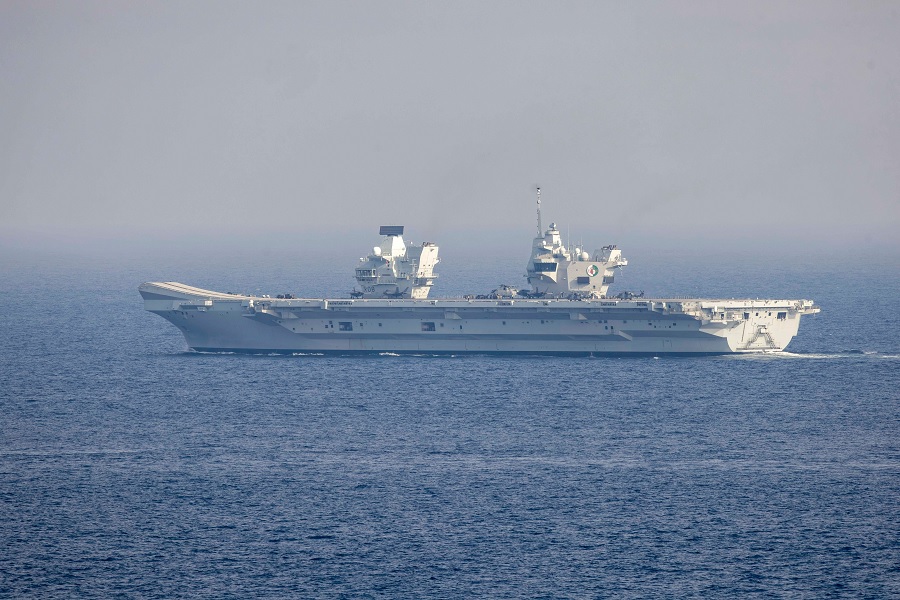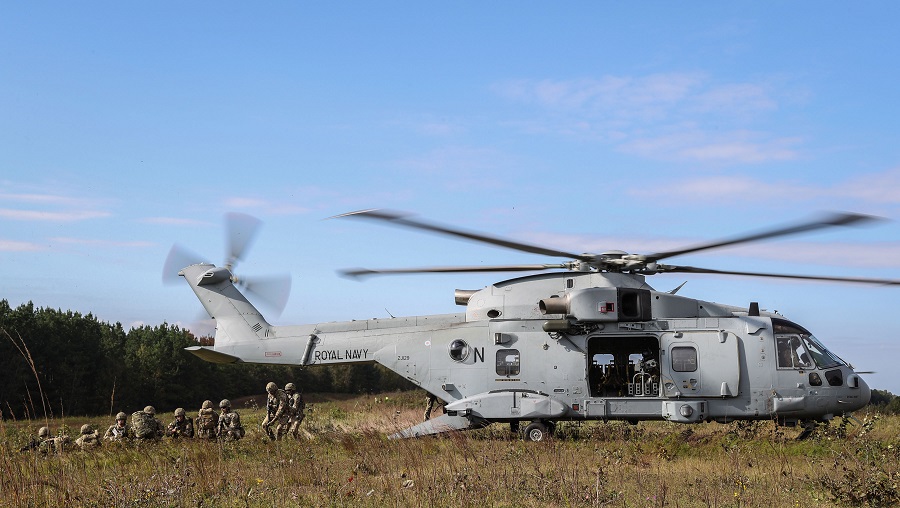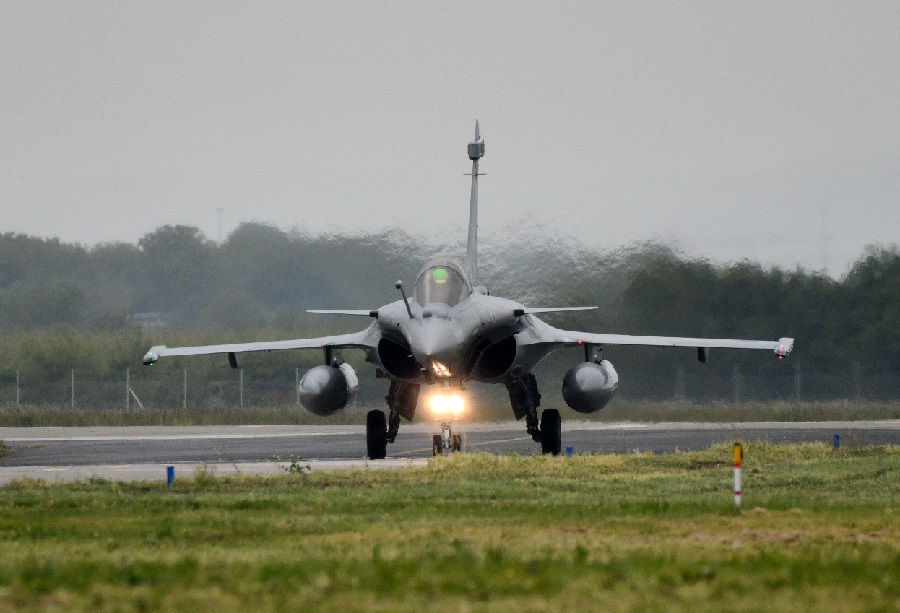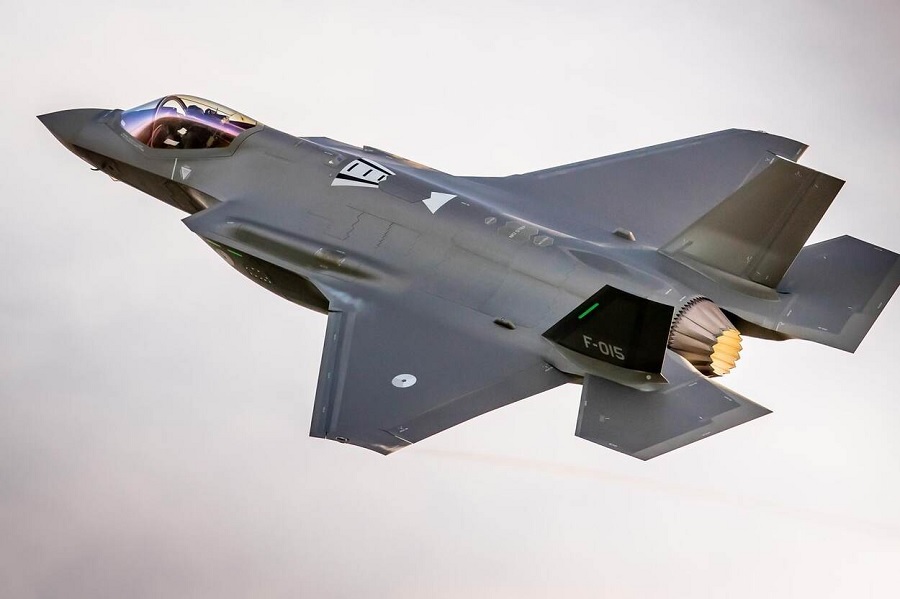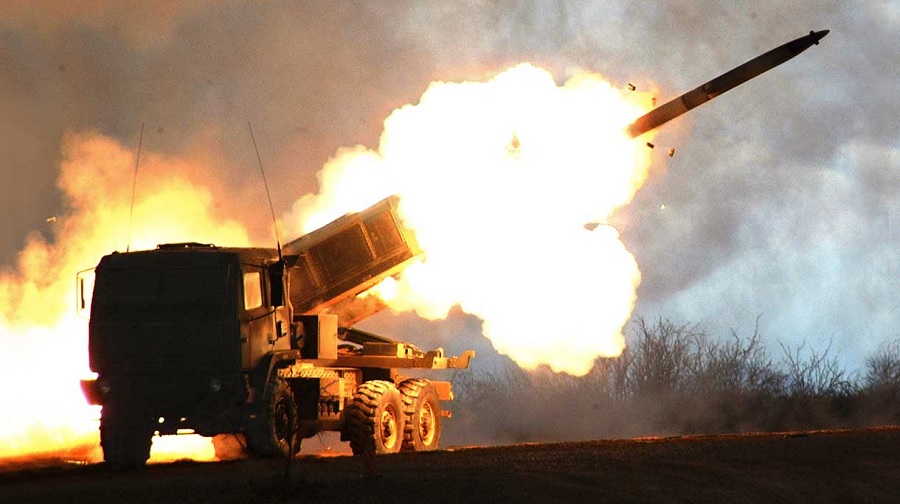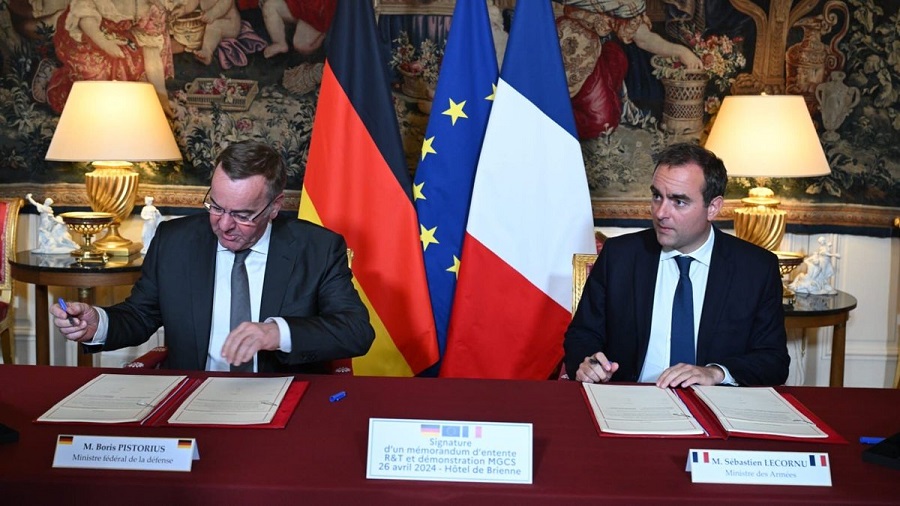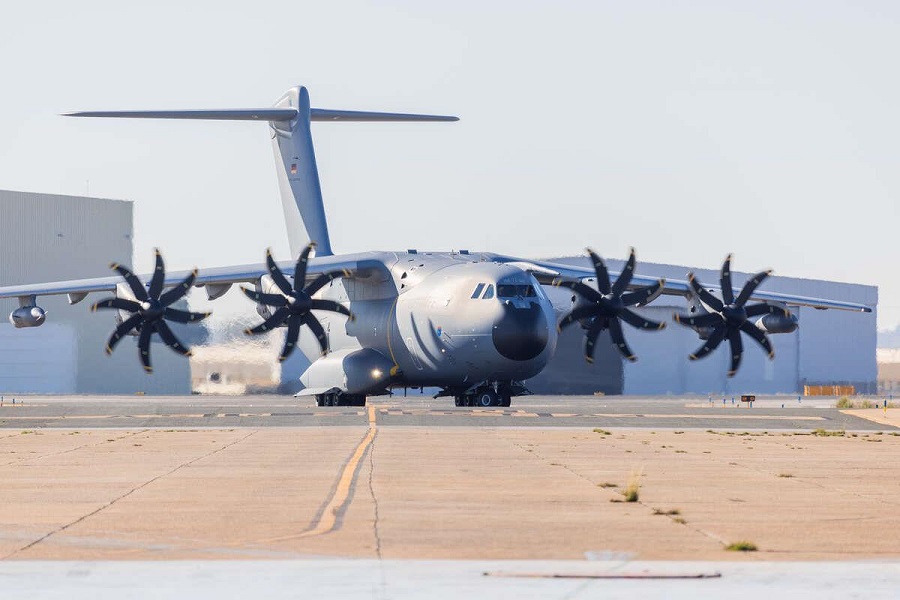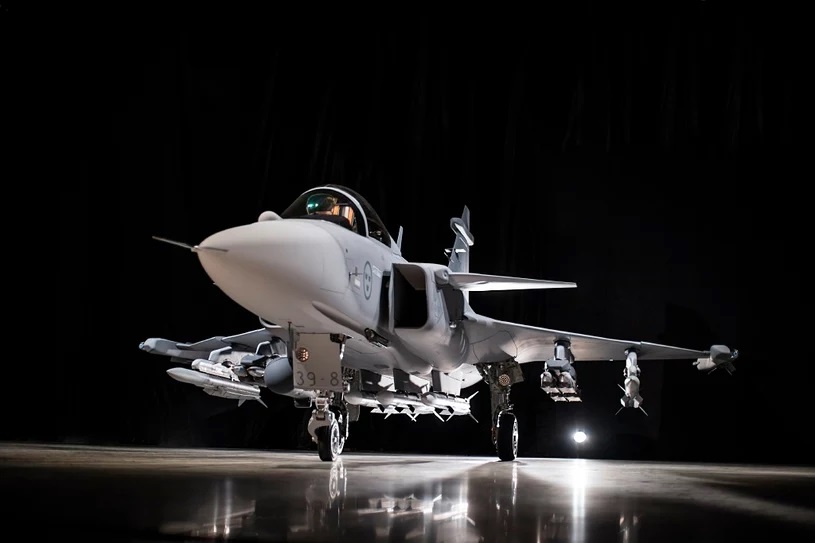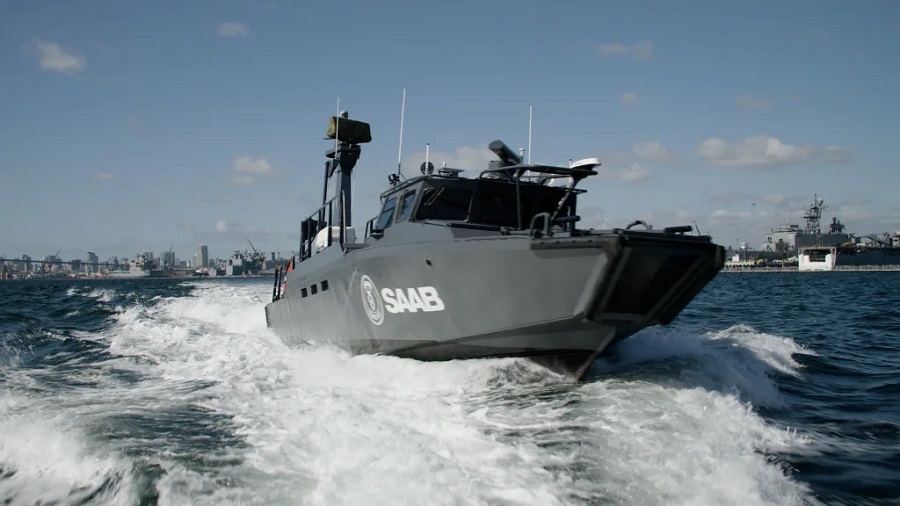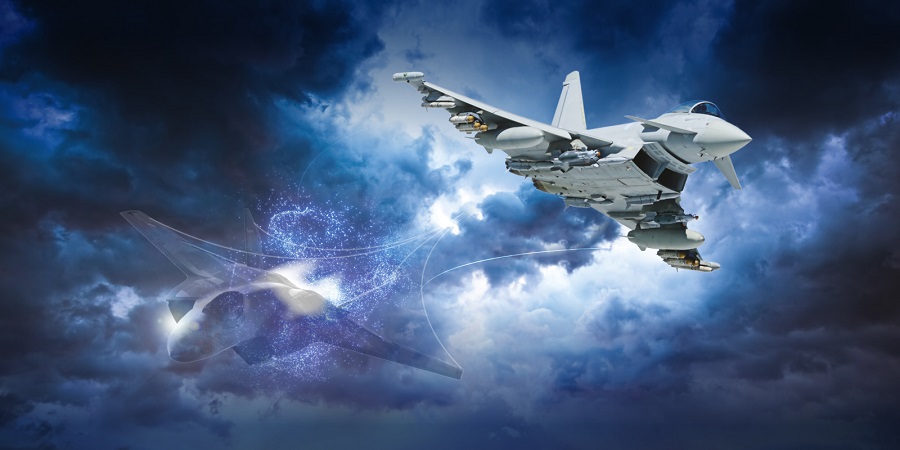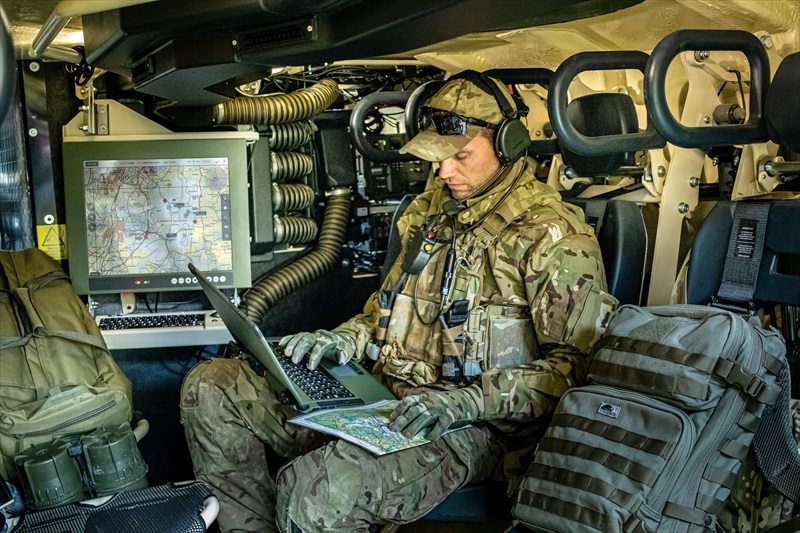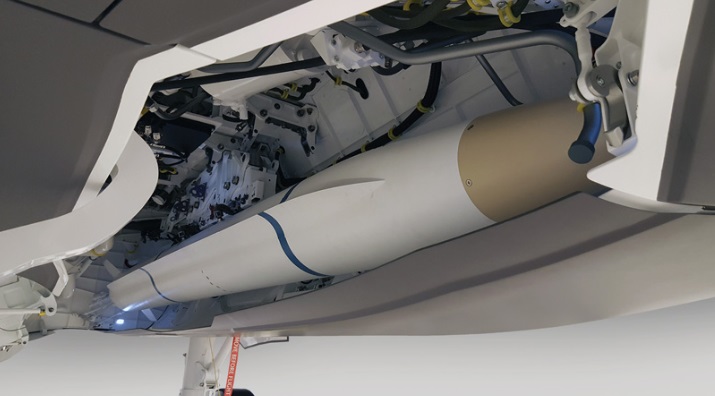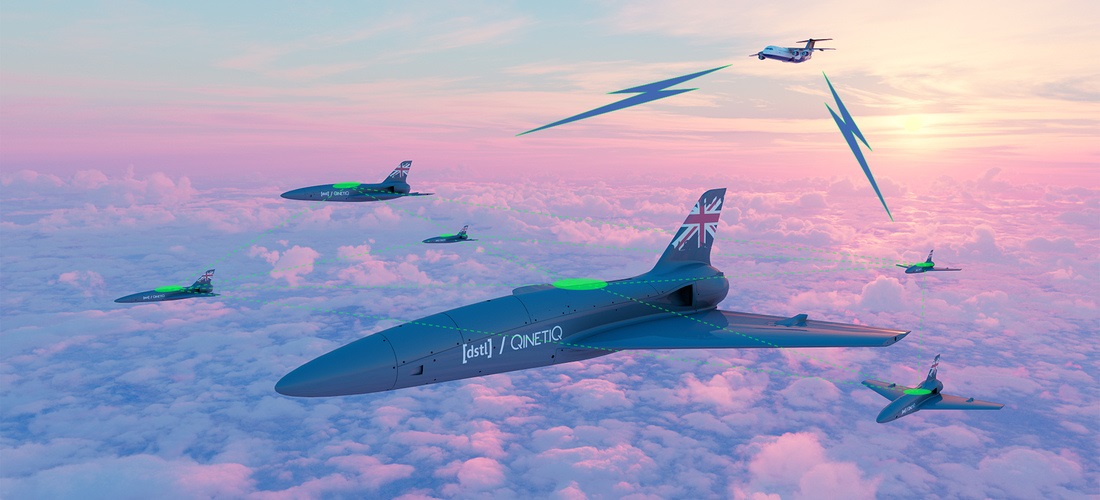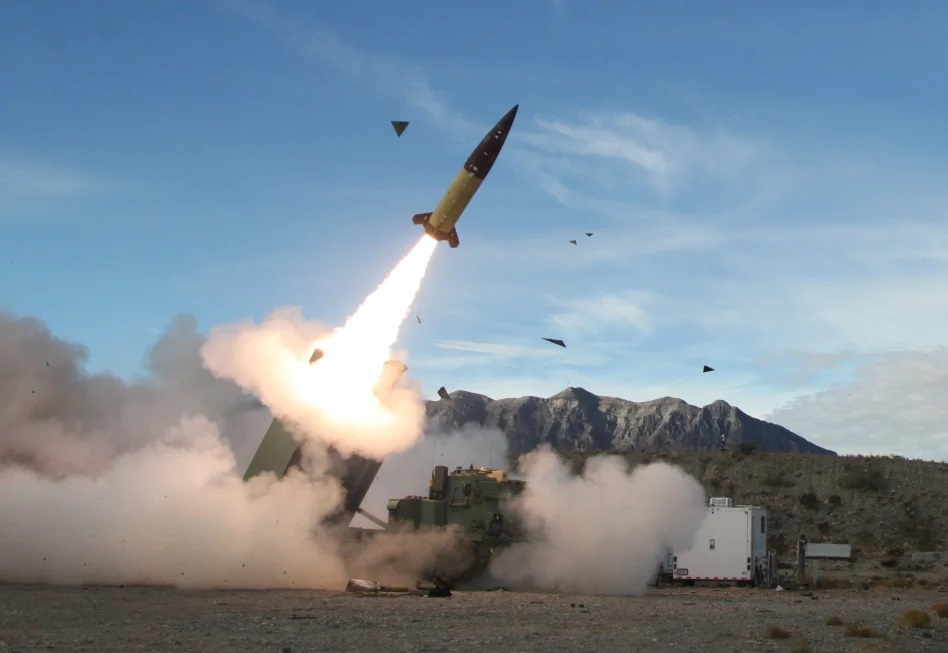The aircraft carrier will be at the heart of combined exercises involving the alliance forces, building up to Steadfast Defender – a huge demonstration of NATO’s resolve, unity and capability involving more than 20,000 UK military personnel alone deployed across Scandinavia and northern Europe.
HMS Queen Elizabeth will lead a carrier strike group of eight ships – four of them British, including frigate HMS Somerset and two Tide-class tankers from the Royal Fleet Auxiliary – supported by US, Spanish and Danish vessels.
They form one of the most potent naval forces of the exercise – an allied fleet of 40 vessels, drawn from more than two dozen nations, is committed to the seagoing element of Steadfast Defender, which will take place off Norway’s Arctic coast in March.
Britain’s flagship brings the awesome capability of her F-35B Lightning stealth fighters from 617 ‘Dambusters’ Squadron at RAF Marham, submarine hunting and airborne early warning Merlin Mk2 helicopters from RNAS Culdrose, and battlefield Wildcat helicopters of 847 Naval Air Squadron from RNAS Yeovilton.
Before heading for Norwegian waters and the High North, the Carrier Strike Group will hone its collective skills in northern Scotland courtesy of the UK’s regular Joint Warrior exercise.
From there the force moves to the High North and Exercise Nordic Response – the maritime element of Steadfast Defender – with the emphasis on protecting northern Norway, Sweden and Finland to defend the Nordic nations from ‘attack’.
“Steadfast Defender demonstrates the unity of the alliance, our commitment to it – and that the UK continues to play a leading role in NATO,” said Commodore James Blackmore, Commander UK Carrier Strike Group, who is in overall charge of HMS Queen Elizabeth, her air power and escorts.
“The exercise allows us to train with our neighbours in a truly challenging environment, especially at this time of year – but that is why we have to operate up there; the weather cannot put us off.”
For the UK flagship and many of her 780 crew (the number will rise to 1,350 when her F-35s and helicopters join her) this is a return to the same waters they sailed in just a few months ago on their autumn deployment.
“These are going to be 40-plus intense days for my ship’s company, there’s a lot of excitement on board and people are ready to go,” said Captain Will King, HMS Queen Elizabeth’s Commanding Officer.
“Many people focus on the kit and capability of HMS Queen Elizabeth, but the human element is a key factor. For those out on the deck, conditions will be extremely harsh at times: strong winds, wind chill of minus 20 or more, heavy seas and a deck moving around, sleet, snow. Then add in darkness for operations at night.
“We do our utmost to protect our people out on deck, while maintaining operations.”
Among the younger members of the crew looking forward to the Arctic mission is 23-year-old Leading Survival Engineering Technician Jack Rutherford from Fife.
It’s his task to ensure the survival equipment aboard the ship and its aircraft – life rafts, life jackets, helmets and the like – is in full working order to save life if necessary in the harshest of environments.
“Operating in a cold weather environment makes things much more challenging. Our equipment is very good, designed for the changes in temperature and extremes you face,” he said.
“This deployment offers some great sights – the chance to see the fjords in the winter, hopefully the Northern Lights – but for me, what is always a special moment is simply sailing up the Clyde. It’s absolutely stunning.”
HMS Queen Elizabeth is due to sail from Portsmouth Naval Base early on Sunday evening at 6pm.


